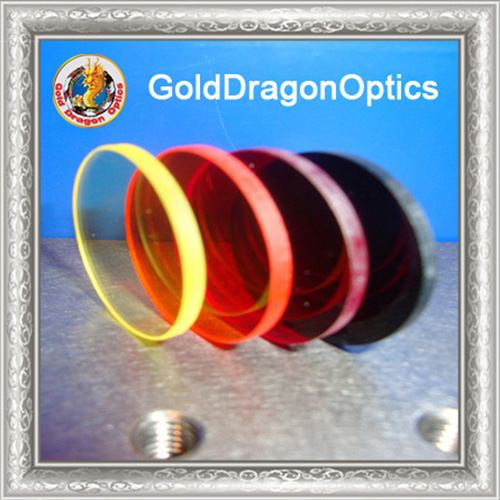1, fertilization shallow or surface application. Fertilizers are volatile, lost or difficult to reach the roots of crops, which is not conducive to crop absorption, resulting in low fertilizer utilization. Fertilizer should be applied to the seed or plant 16 to 26 cm below the side.
2, double chlorine fertilizer. The compound fertilizer produced by ammonium chloride and potassium chloride is called double-chlorine fertilizer, and contains about 30% chlorine. It is easy to burn seedlings and should be watered in time. Chlorine-free fertilizers cannot be applied to saline-alkali and chlorine-sensitive crops. Excessive application of potassium chloride to leaves (stem) vegetables not only causes the vegetables to be less tender and more fibrous, but also makes the vegetables taste bitter, with poor mouthfeel and low benefits.
The urea-based compound fertilizer has high nitrogen content, and the biuret has a slightly high nitrogen content. It is easy to burn the seedlings, and attention should be paid to watering and fertilization depth.
3. Improper application of chemical fertilizers to crops may cause fat damage, burning seedlings, plant wilting and so on. For example, excessive application of chemical fertilizers or insufficient soil moisture after fertilization may cause the soil solution concentration to be too high, and the roots of the crops may be difficult to absorb water, causing the plants to wilting or even die. Excessive application of nitrogen fertilizer, a large amount of ammonia or ammonium ions in the soil, on the one hand ammonia volatilization, the formation of alkaline small water droplets in the air droplets, burning crops, causing scorch spots on the leaves; on the other hand, ammonium ions in the drought The soil is easily nitrified and converted into ammonium nitrite under the action of nitrosating bacteria. The gasification produces nitrogen dioxide gas, which will poison the crops, and irregular water-like plaques appear on the leaves of the crops, and the veins gradually turn white. In addition, when there is too much ammonium in the soil, the plant will absorb too much ammonia and cause ammonia poisoning.
4. Excessive use of certain nutrients will not only poison the crops, but also hinder the absorption of other nutrients by the crops and cause deficiency. For example, excessive nitrogen application can cause calcium deficiency; excessive nitrate nitrogen can cause chlorosis in the absence of molybdenum; excessive potassium can reduce the effectiveness of calcium, magnesium, and boron; excessive phosphorus can reduce the effectiveness of calcium, zinc, and boron.
5, fresh manure should not be directly applied to vegetables. Fresh human excrement contains a large number of germs, toxins and parasite eggs. If it is applied directly without decomposing, it will contaminate vegetables, easily spread diseases, and can be applied after high temperature stacking fermentation or harmless treatment. Unfertilized livestock and poultry manure will produce a large amount of harmful gases such as hydrogen sulfide in the process of decomposing, which will easily cause vegetable seeds to lack oxygen and suffocate; and generate a large amount of heat, which may cause vegetable seeds to burn or root rot, which is not conducive to vegetable seed germination. Growing.
In order to prevent the occurrence of fertilizer damage, attention should be paid to rational fertilization in production. First, increase the application
Organic fertilizer to improve soil buffer capacity; second, apply fertilizer according to regulations. According to the soil nutrient level and the demand for nutrients in the crop, rational fertilization, not increasing the amount of fertilization, applying the principle of light fertilizer and applying the fertilizer; the third is full-layer fertilization. The same amount of chemical fertilizer, when applied locally, often causes the concentration of local soil solution to rise sharply, damage the root system of the crop, and change to full-layer fertilization, so that the fertilizer is evenly distributed throughout the plough layer, so that the crop can avoid damage.
Absorptive Longpass Filters, filters , filters on snapchat,filters snapchat , filters fast , filters hvac ,filters to photos, filters refrigerator, filters photo
We can design and process all kinds of Spherical Mirrors, cylindrical Mirrors, plane mirrors, carbon dioxide (Co2) laser mirrors and all kinds of laser mirrors according to the needs of users.
Outer circle: 4mm -- 200mm
Thickness tolerance: ±0.1mm
Surface accuracy: /4
Surface quality: 40/20
Effective diameter: 90%
Reflective film: aluminum, gold, silver, etc., medium reflective film, metal reflective film, carbon dioxide (Co2) laser reflective film can be coated according to customer demand.

We can design and process all kinds of spherical mirrors, cylindrical mirrors, plane mirrors, carbon dioxide (Co2) laser mirrors and all kinds of laser mirrors according to the needs of users.
Outer circle: 4mm -- 200mm
Thickness tolerance: ±0.1mm
Surface accuracy: /4
Surface quality: 40/20
Effective diameter: 90%
Reflective film: aluminum, gold, silver, etc., medium reflective film, metal reflective film, carbon dioxide (Co2) laser reflective film can be coated according to customer demand.
Absorptive Longpass Filters,Bend Insensitive Fiber,Cylindrical Lenses Astigmatism,Cover Glass Slides
Gold Dragon Optics Electronic Technology CO.,Ltd , https://www.golddragon-optics.com